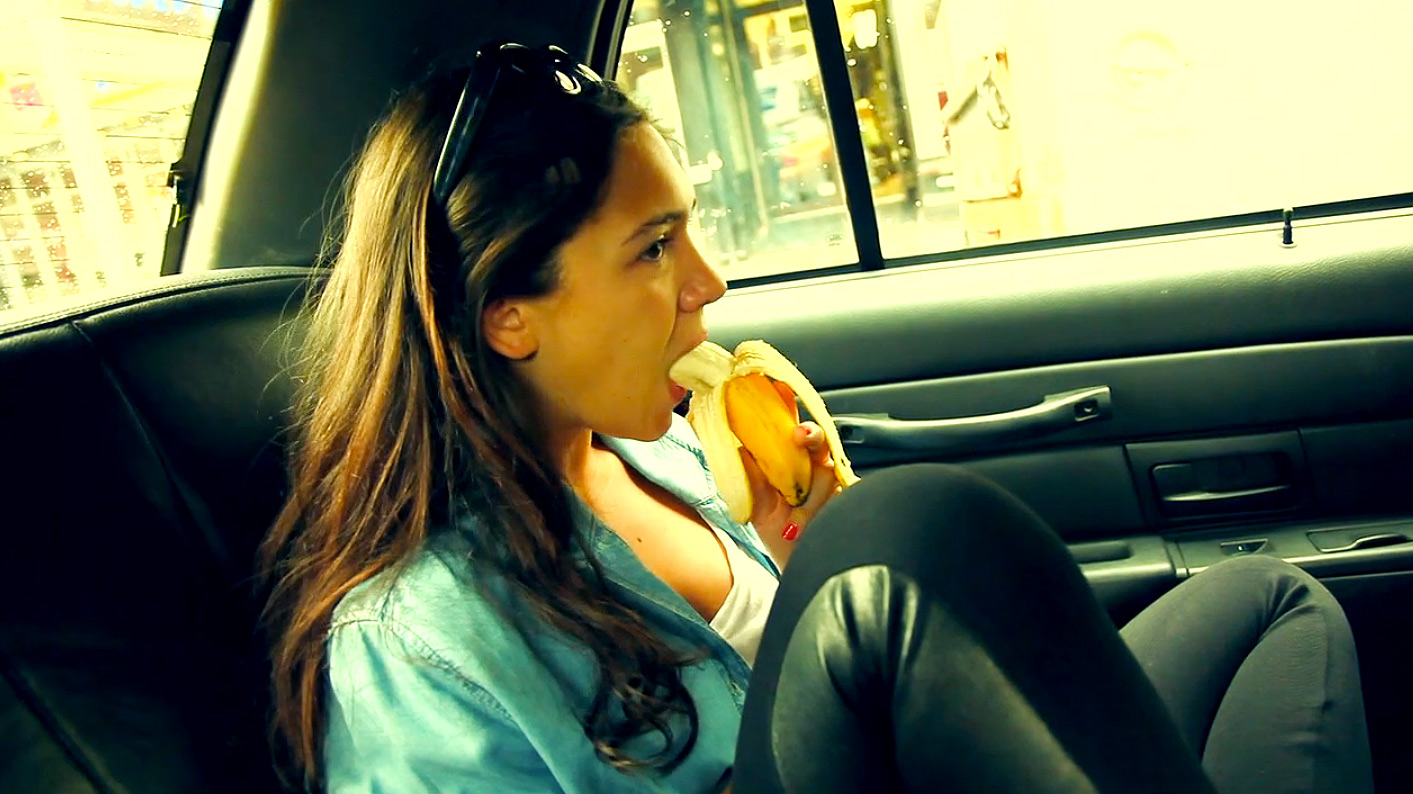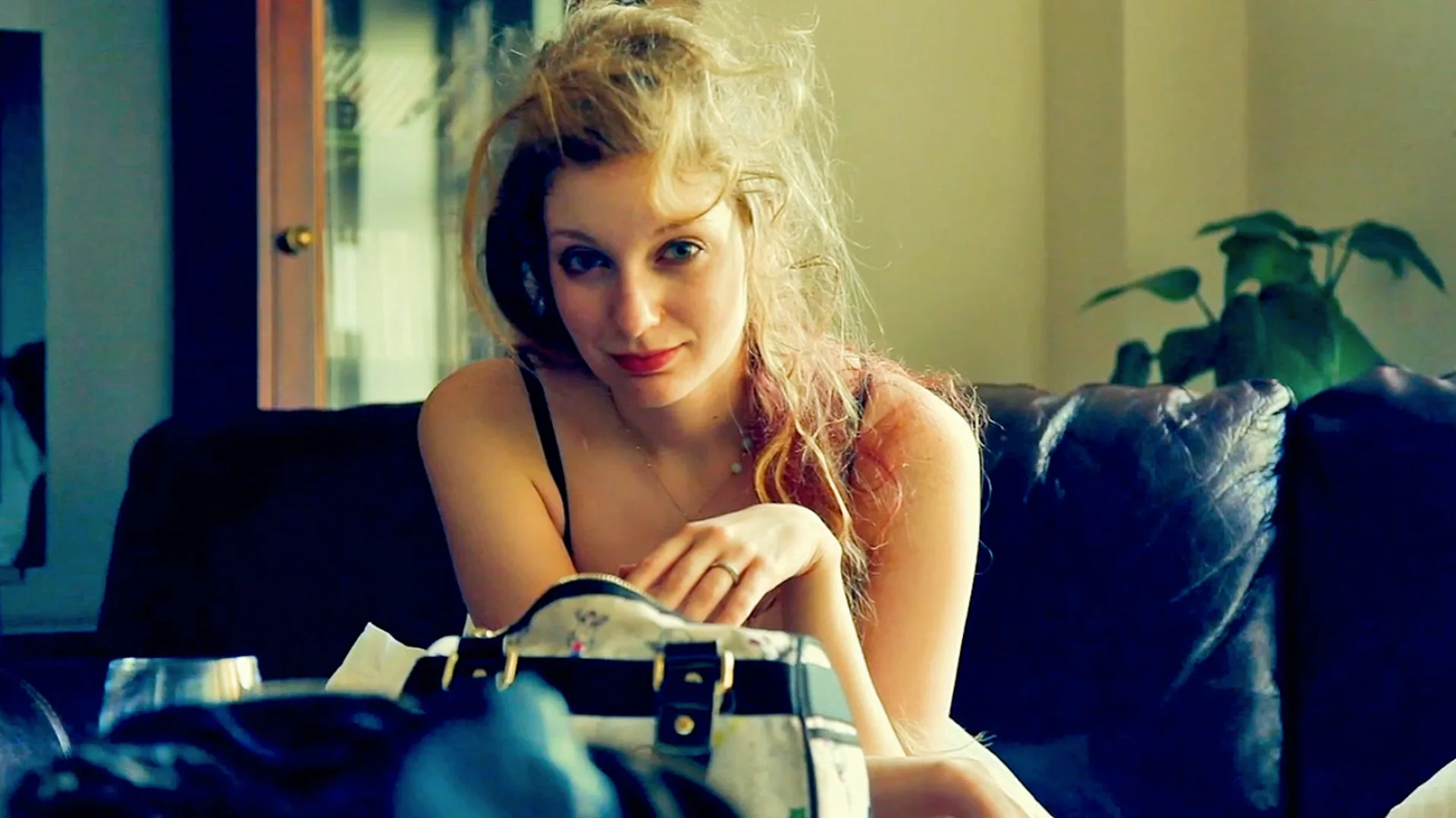Artist and storyteller Jonathan Harris creates Internet-based projects that experiment with how people relate to technology and each other. His works have included the interactive database of human emotions “We Feel Fine,” and the more recent story sharing platform “Cowbird,” but Harris veers in a more provocative direction with his new interactive documentary, I Love Your Work. The project centers on nine women in the feminist lesbian porn industry who are recorded for a 24-hour period, with 10-second blips of their everyday lives playing out in five-minute intervals. What’s revealed is an intimate portrait of a marginalized community opening up about sex, gender politics, depression, and their daily grind in a way that’s downright real. All the action takes place in New York during a span of 10 days in May 2010, while each character was part of a new porn film by Juicy Pink Box called Therapy.
If the subject piques your interest, don’t think you can just click away and view this footage for free. The full interactive experience is limited to 10 viewers per day, and tickets are $10 each, booked in advance. There’s also an instant-access premium package for $300, which includes three tickets, plus an archival inkjet print. The fee structure defies traditional conventions of online porn, but also experiments with how value is placed on digital work. We were granted access to the full documentary and after spending much of our rainy Sunday afternoon with Jincey, Jess, Dylan, Ryan, Luna, Dolores, Ela, Nic, and Joy, we wanted to get the lowdown from Harris on intimacy, outsider communities, and perceptions of porn.
Co.Create: None of your previous work touches upon lesbian porn–what made you curious about exploring this marginalized community?
Jonathan Harris: I think I’m generally drawn to outsiders and outsider communities, like my 2007 project The Whale Hunt. I think when you’re an outsider, you have a different perspective that allows you to see things that are difficult to see from the inside, and you often have really good insights, because you’re less conditioned to the ordinary way of doing things. Also, you have less stake in preserving the status quo, so you end up pioneering new territory more quickly and boldly than insiders do.
Porn sites are like an outsider community within the larger population of all websites, but they are unique among outsider communities in that so many of us have seen them from within. Most men (and many women) watch porn regularly, but very few admit to watching it. Yet despite porn’s familiarity, the people who make porn remain largely unknown. We know them through the fantasies they produce for us, but we do not know their realities. To me, this juxtaposition was really interesting–the realities of those who make fantasies.
Like other outsider communities that pioneer new approaches to life, porn has played a pioneering role in the evolution of the Internet. Porn sites were the first to use digital photos, digital videos, chat, e-commerce, social networking, and virtual 3-D worlds. New technologies are often tested in the world of porn, and if successful, later introduced to the mainstream Internet. So porn plays this really important role as a staging ground for new technologies, but it rarely gets credit for that. In a lot of ways, porn is like the elephant in the room of the Internet.

Of course, the people who make porn are also outsiders, and, like all outsiders, have a pioneering capacity, trailblazing the way for the rest of us. The footage for I Love Your Work was shot back in 2010, and the willingness of these nine women to open up their lives to an anonymous public through a 24/7 “follower” model (i.e., me), foreshadowed broader cultural shifts around privacy, self-promotion, and self-documentation, which we now take for granted. In the three years since this footage was shot, the cultural norms around sharing and privacy have become enormously more permissive and liberal, and I think the openness of these nine women was prophetic.
Why did you call the project I Love Your Work?
Anyone who makes work for other people to see will, at some point in their career, receive that compliment. It’s something we all both hear and say. It’s also one of those statements–like “It’s so interesting”–that is sufficiently trite and vacuous as to be almost meaningless. It just seemed really funny to me to imagine these lesbian porn stars having people walk up to them and say “Oh my gosh, I love your work!” because if people know their work, chances are they were masturbating when they saw it, so it adds this other layer to the compliment, which is awkward and graphic and intimate and I think really funny.
What was the reason you decided to allow only 10 visitors per day and charge a fee? Why distribute it this way?
Internet porn is instant and abundant, and most websites compete to see how many viewers they can amass. It seemed interesting to do the opposite.
Also, I think a major cultural shift needs to happen around how we value digital work. People think of digital experiences as being cheap, free, and disposable, so they’re generally not valued, and the creators of those experiences are forced to make a living in some other way–through advertising, freelance work, or other full-time jobs. This is a bad dynamic. Makers of physical objects (paintings, trousers, etc.) rely on scarcity to determine value. Makers of real-world experiences (concerts, restaurants, etc.) rely on the limitations of seating capacity to determine value. Online, there is no natural scarcity, so it has to be created artificially. Netflix and iTunes create this artificial scarcity with their 24-hour movie rentals, and people feel okay about this–they understand that movies cost money to make, and that good work should be rewarded.
The economic aspects of I Love Your Work are a little experiment to gauge whether people will pay to experience digital work. The ticket price of $10 is the cost of a standard American movie ticket. I’m certainly not suggesting that all digital work should be put behind paywalls, but I think there is some subset of digital work that is really, really good, and that deserves to be paid for.
Throughout each story, each woman presents herself in strikingly different ways but the common thread is how, at moments, each woman expresses her vulnerability to the camera. Did you see glimpses of this, too, over the 24 hours you were filming?
It’s hard to keep up any kind of performance for 24 hours, so at some point in each of the 10 days, the woman I was following would seem to shed a veneer, and some deeper layer would start to surface. It was always hard to pinpoint exactly when that shift occurred, but I think it definitely happened at some point each day.
For someone like Dolores, who was doing porn for the first time, she definitely felt like a changed person immediately after her scene on set. That morning, she was full of confidence and bravado, and after her orgasm scene a much more human, fragile side of her emerged. There’s a scene in the film, right after she has her orgasm on set and everyone is buzzing around the studio, preparing for the next shoot, and Dolores is just standing against a black curtain, her bra in her hand, her long black hair extensions covering her breasts, with people dashing around her, and she’s just looking at the floor and touching her hair and in this deeply contemplative place, and to me, that’s one of the most beautiful moments in the film–just a really human moment, which reminds you that all the fantasies in the world are made by actual people, and the fantasies take something out of the people who make them.

After that scene with Dolores, I started to feel less like someone documenting her life, and more like a friend who was there to support her through what proved to be a kind of traumatic experience for her. I remember when we got back out to Bushwick, where she was living, I bought us a couple of cotton candies from a guy in a truck, and we ate them on the street, and we laughed, and it felt really simple and therapeutic.
How did the project change your perception of porn?
The illusion of porn is less believable for me now. When I see porn now, I see real people and I imagine what their lives are like. The images of beauty I see–whether in porn, magazines, movies, or other media–are now filtered through a realization that the people in the pictures don’t look that way in ordinary life. I understand the power of makeup and lighting to transform an ordinary person into a fantasy object, and that fantasy objects don’t really exist. I think this is a humanizing thing to realize, and it makes me feel better about my own body and about the bodies of other people in my life.
The other big change I experienced by doing this project was in the way I see my own sexuality. I was raised in a pretty conservative environment, had a fancy education (boarding school, Princeton, etc.), and I was generally taught not to talk about sex–that it was something you did in private but did not discuss. And often, sex was something not to be talked about even with the person you were doing it with!

For these nine women, sex was so normalized, and their sexual predilections were things they talked about openly–common first-date conversation–the way many straight people might talk about their favorite kind of sandwich. The 10 days I spent filming I Love Your Work definitely changed my own approach to sex and sexuality.
Lesbian porn can sometimes be viewed as a fantasy, especially for men. Though there are graphic moments, this is much more about intimacy. Why was getting that across important to you?
That was definitely important, but it’s something that happened naturally. The atmosphere on set, where the actual porn was being produced, was pretty unsexy to me. It was this small cramped room in midtown Manhattan, with lots of people and equipment. Dolores sums it up at one point in the film where she says, “I feel like I’m generally a pretty sexy person, but I have never felt so unsexy in my life.”
I think a lot of fantasies happen this way, and not just porn. In my neighborhood in Brooklyn they are constantly shooting movies and TV shows, and when I walk by, it always seems like there’s about 200 people just sitting around eating bagels and all this gear and permits and wardrobe trucks, all for a 15-second shot. And that always seems so ridiculous to me–that in order to create an illusion that looks real, it takes so much fakeness. Yet still we love our fantasies.














